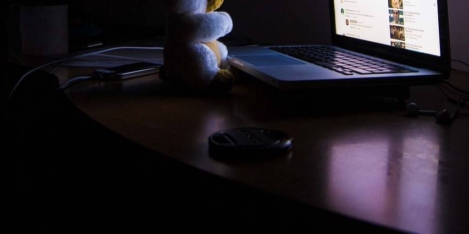To provide the best experiences, we use technologies like cookies to store and/or access device information. Consenting to these technologies will allow us to process data such as browsing behaviour or unique IDs on this site. Not consenting or withdrawing consent, may adversely affect certain features and functions.
The technical storage or access is strictly necessary for the legitimate purpose of enabling the use of a specific service explicitly requested by the subscriber or user, or for the sole purpose of carrying out the transmission of a communication over an electronic communications network.
The technical storage or access is necessary for the legitimate purpose of storing preferences that are not requested by the subscriber or user.
The technical storage or access that is used exclusively for statistical purposes.
The technical storage or access that is used exclusively for anonymous statistical purposes. Without a subpoena, voluntary compliance on the part of your Internet Service Provider, or additional records from a third party, information stored or retrieved for this purpose alone cannot usually be used to identify you.
The technical storage or access is required to create user profiles to send advertising, or to track the user on a website or across several websites for similar marketing purposes.
 The solo self-employed are now a vital element of the UK economy, contributing around £271 billion to the government’s coffers in 2017, of which around £125–140 billion came from freelancers. But with some predicting that by 2020, half of the workforce will be freelancing, we need to take an objective look at the world of self-employment and tackle its challenges head-on, giving freelancers the tools and skills they need to work effectively — and happily.
The solo self-employed are now a vital element of the UK economy, contributing around £271 billion to the government’s coffers in 2017, of which around £125–140 billion came from freelancers. But with some predicting that by 2020, half of the workforce will be freelancing, we need to take an objective look at the world of self-employment and tackle its challenges head-on, giving freelancers the tools and skills they need to work effectively — and happily.















 One in 10 women blame workplace banter for causing mental health issues and are twice as likely as men to have been negatively affected by workplace banter, according to a new report by The Institute of Leadership & Management. Banter: Just a bit of fun or crossing the line? found that more women (twice as many at 20 percent) were made to feel less confident than their male colleagues due to the negative banter they experienced and 10 percent of women said banter has had a negative impact on their mental health, compared to just three percent of men. The survey also revealed that those at the mid-way point in their careers (31-40 years) are most affected by banter. This age group reported loss in confidence, drops in performance and poor mental health due to experiencing negative banter. They also said they avoided work situations and skipped work socials. The findings showed that over a third of graduate trainees have been left embarrassed by banter and people (over 1 in 4) in their first job are more likely to avoid work socials than any other group as a result of banter.
One in 10 women blame workplace banter for causing mental health issues and are twice as likely as men to have been negatively affected by workplace banter, according to a new report by The Institute of Leadership & Management. Banter: Just a bit of fun or crossing the line? found that more women (twice as many at 20 percent) were made to feel less confident than their male colleagues due to the negative banter they experienced and 10 percent of women said banter has had a negative impact on their mental health, compared to just three percent of men. The survey also revealed that those at the mid-way point in their careers (31-40 years) are most affected by banter. This age group reported loss in confidence, drops in performance and poor mental health due to experiencing negative banter. They also said they avoided work situations and skipped work socials. The findings showed that over a third of graduate trainees have been left embarrassed by banter and people (over 1 in 4) in their first job are more likely to avoid work socials than any other group as a result of banter.






 Over a fifth (21 percent) of 18-24 year olds admit that they have rejected a potential employer because of the poor design of the office or lack of amenities available, while 34 percent in the same age group would be willing to commute for a maximum of one hour each way to an office that is considered perfect – compared to 22 percent of 45-54 year olds. The research, commissioned by Mindspace, found that 16 percent of 18-24 year olds have actually left a job because of how poorly designed the office was in one of their previous roles. Overall, nearly a third (31 percent), of workers are bored with their current office environment and feel uninspired at work, with 28 percent of workers describing their place of work outdated and dull. The research also found that while most workers had access to amenities such as a kitchen (72 percent), meeting rooms (66 percent) and free tea & coffee (53 percent), what UK office workers desire the most to improve morale is more natural light, air conditioning and improved interior lighting.
Over a fifth (21 percent) of 18-24 year olds admit that they have rejected a potential employer because of the poor design of the office or lack of amenities available, while 34 percent in the same age group would be willing to commute for a maximum of one hour each way to an office that is considered perfect – compared to 22 percent of 45-54 year olds. The research, commissioned by Mindspace, found that 16 percent of 18-24 year olds have actually left a job because of how poorly designed the office was in one of their previous roles. Overall, nearly a third (31 percent), of workers are bored with their current office environment and feel uninspired at work, with 28 percent of workers describing their place of work outdated and dull. The research also found that while most workers had access to amenities such as a kitchen (72 percent), meeting rooms (66 percent) and free tea & coffee (53 percent), what UK office workers desire the most to improve morale is more natural light, air conditioning and improved interior lighting.








June 21, 2018
The hype surrounding wellbeing concepts can blind us to their true value
by Georgia Elliott-Smith • Comment, Wellbeing
(more…)